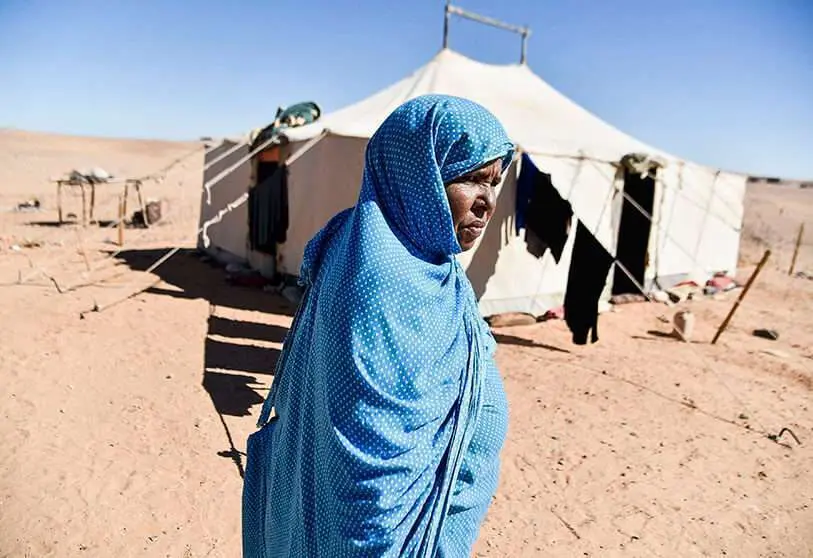Concern in Laayoune and Tindouf over Moroccan silence on the Saharawi Movement for Peace

Among the Saharawis living in the territory under Moroccan administration, and those in the Tindouf camps in Algeria, there is no explanation for the official silence of the Moroccan government in the face of the emergence of the Saharawi Movement for Peace (MSP), which is gaining increasing support and sympathy.
In Tindouf, where the MSP is fighting to impose the values of justice, democracy, rights and freedoms on the refugee population, they are anxiously awaiting a gesture from the Moroccan executive to indicate that the autonomy proposal for the territory of the Sahara which King Mohammed VI has put on the table also includes democratic rights and individual freedoms. Many Saharawis in the camps find it incomprehensible that the government in Rabat does not say that "those values" defended by the MSP are inherent in the Moroccan proposal for a solution to the Saharan problem. Perhaps the Royal Palace fears that the UN might misinterpret the support of peaceful values defended by the Saharawi movement; and yet it has every right to do so when it comes to political positions and not organisational support.
In the face of Moroccan silence, the most radical groups within the ranks of the Polisario find the right ground to entrench themselves in the "hard line" expressed by Brahim Ghali, who, in addition to raising the tone of denunciation in the UN and accusing Hach Ahmed Baricalla, who leads the MSP, of being a traitor, declares that MINURSO will be received only in "the liberated territories" (Bir Lahlou) to the east and south of the Moroccan defensive walls, and that the Polisario Front would only decide on measures to help implement the referendum on self-determination.
A similar position is being expressed in the cities of former Western Sahara, Laayoune, Smara, Boujdour and Dakhla, where the MSP has recently gained ground.
In addition to the Sahrawi Association for the Defense of Human Rights (ASADEH), which succeeded in getting the Audiencia Nacional ( the spanish National Court) to extend the time limit for the investigation of the complaint lodged against a large number of Polisario leaders, including Brahim Ghali, accused of torture and crimes against humanity, pending the rogatory commission sent to Algiers, other groups defending rights and freedoms in the Territory have supported the MSP. Among the Saharawi militants active in the Territory of the Sahara, a more open position was expected from Rabat.
In the letters sent by the Secretary General of the MSP to the permanent members of the UN Security Council, he clarifies that "our aim is to exert positive influence from a realistic approach in order to achieve a mutually agreed solution which guarantees the rights and interests of the parties". This leaves no ambiguity about what the Saharawi Movement for Peace is, and the objectives it pursues.
The credibility of the Moroccan proposal for advanced autonomy for the Sahara region is therefore at stake.

